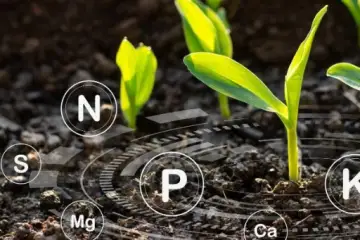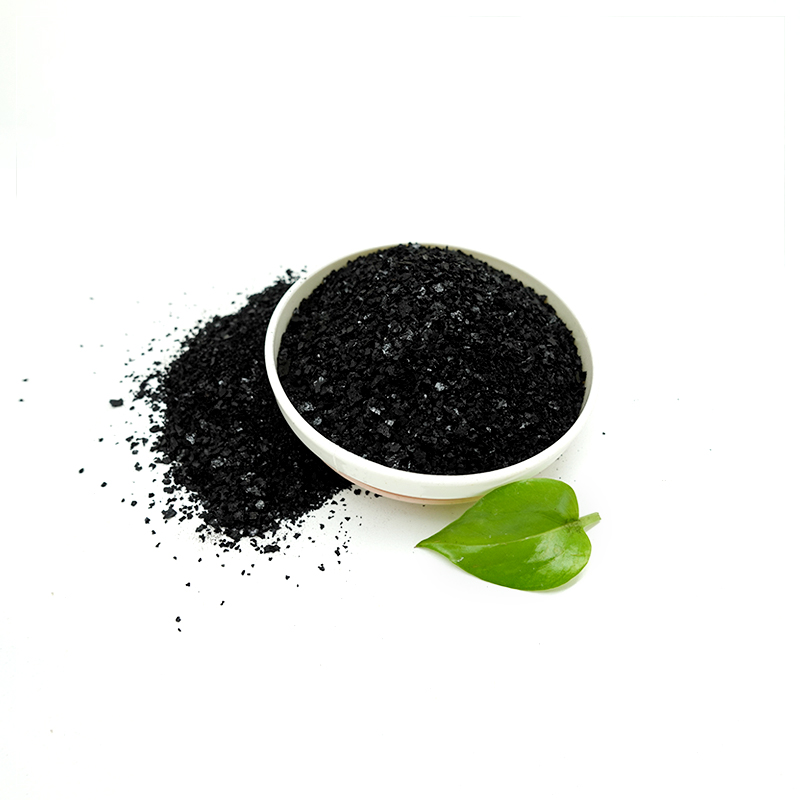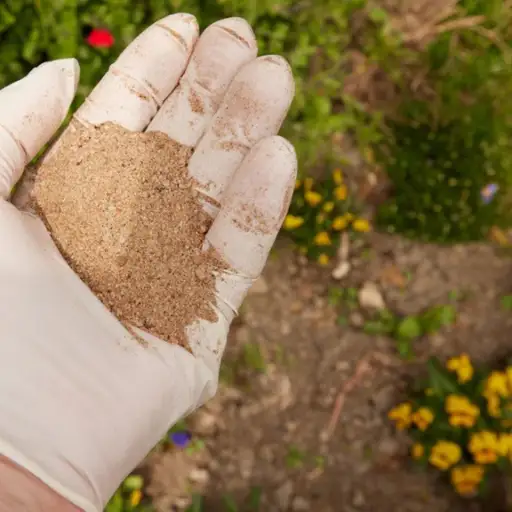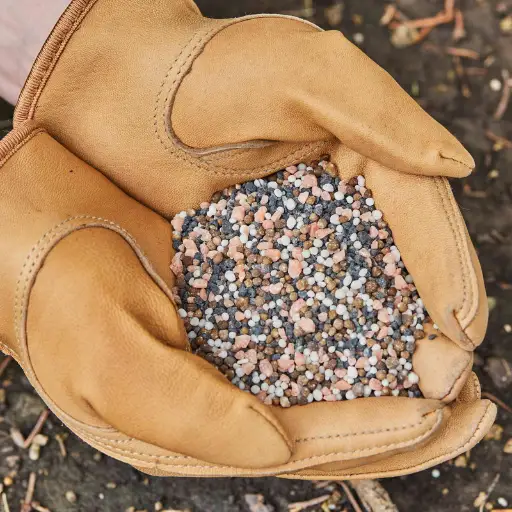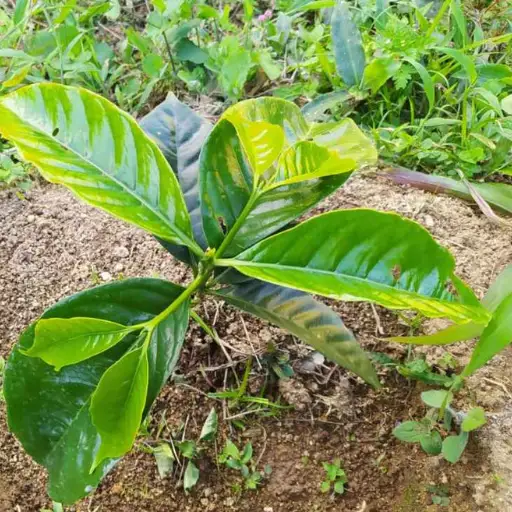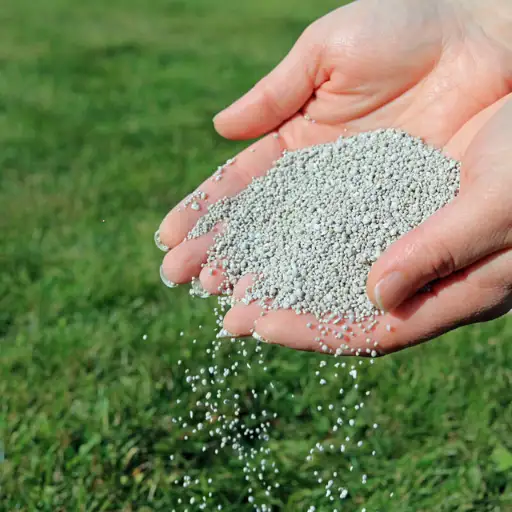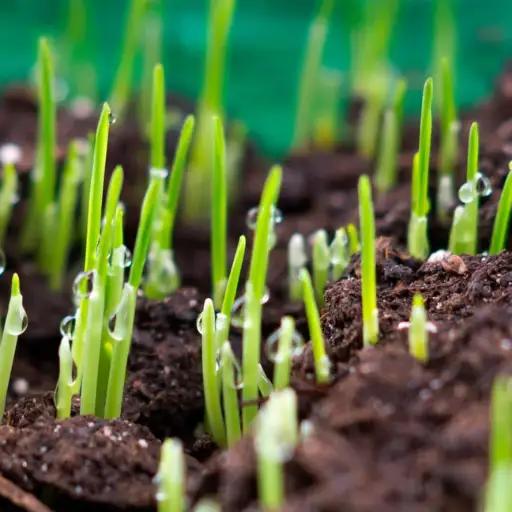Introduction: Understanding Organic Citrus Fertilization
Selecting suitable citrus fertilizer organic is a crucial step in successful management of orchards as it promotes optimal plant growth and fruit yield. By examining various types of citrus fertilizers and their unique features and benefits, including organics, we found they’re different to non-organic fertilizers in many aspects, and are a more advanced option for growing citrus trees.
Such organic fertilisation, based on natural materials obtained from plant, animal or mineral sources, rather than chemically synthesised compounds, feeds the plants as well as the soil, enriching its organic matter with a multitude of beneficial microbial work. With citrus fertilizer organic treatments, these nutrients are releaséd slowly and efficiently, just like in nature.
The virtues of purchasing organic citrus fertilizer go far beyond just meeting a citrus tree’s immediate nutritional needs. As the agronomist and expert on organic cultivation methods Helen Brown puts it: ‘When using organic fertilizers, you get a balanced set of nutrients that contribute to soil health. Soil health is integral to an agricultural system that is both agronomically sustainable and environmentally sustainable for the long term.
Choosing the right type of organic citrus fertilizer is about knowing what type of nutrients are needed by a citrus tree, and the characteristics of the soil of the orchard. Factors such as the nutrient content of the fertilizer, its effect on the soil pH, and the timing of application are key to the success of the orchard.
Types of Organic Citrus Fertilizers
Exploring the diverse forms of citrus fertilizer organic can significantly enhance the effectiveness and sustainability of your orchard management. Here’s a breakdown of the various types of organic fertilizers available and how each can benefit your citrus trees.
Forms of Organic Citrus Fertilizers
Organic citrus fertilizers come in several forms, each designed for specific needs and application methods:
- Liquid Organic Fertilizers: Fast-absorbing and ideal for immediate nutrient delivery, these are perfect during the critical growth phases of citrus trees, particularly at the onset of the growing season.
- Granular Organic Fertilizers: Known for their slow-release properties, granular fertilizers provide sustained nutrition over time, making them suitable for initial soil conditioning at the start of the season.
- Powdered Organic Fertilizers: Similar to granular types but finer, these fertilizers ensure a slow, steady release of nutrients, which helps prevent nutrient burn and promotes ongoing soil health enhancement.
Popular Organic Fertilizers for Citrus
Choosing the right type of organic fertilizer can have a profound impact on the health and productivity of your citrus trees:
- Fish Emulsion: High in nitrogen, this fertilizer supports vibrant leaf and branch development and is particularly useful for young, actively growing trees.
- Compost Tea: This nutrient-rich liquid introduces a beneficial microbial community to the soil, enhancing root health and nutrient uptake.
- Bone Meal: Rich in phosphorus, bone meal is essential for robust root growth and effective flower development, crucial for fruit production.
Dr. Emily Carter, a renowned soil scientist, emphasizes the benefits: “Using the right type of organic fertilizer supports not only strong citrus growth but also cultivates a healthier soil ecosystem essential for sustainable agriculture.
Impact on Soil Health and Citrus Productivity
The application of organic fertilizers plays a critical role in enhancing soil quality and overall orchard health:
- Enhancing Soil Fertility: Organic fertilizers increase soil organic matter, which improves water retention and nutrient availability.
- Boosting Microbial Activity: The natural ingredients in organic fertilizers foster a healthy microbial ecosystem in the soil, crucial for nutrient cycling and plant health.
In summary, understanding the different types of citrus fertilizer organic and their unique benefits allows growers to make informed decisions that enhance citrus growth, improve soil health, and contribute to sustainable agricultural practices.
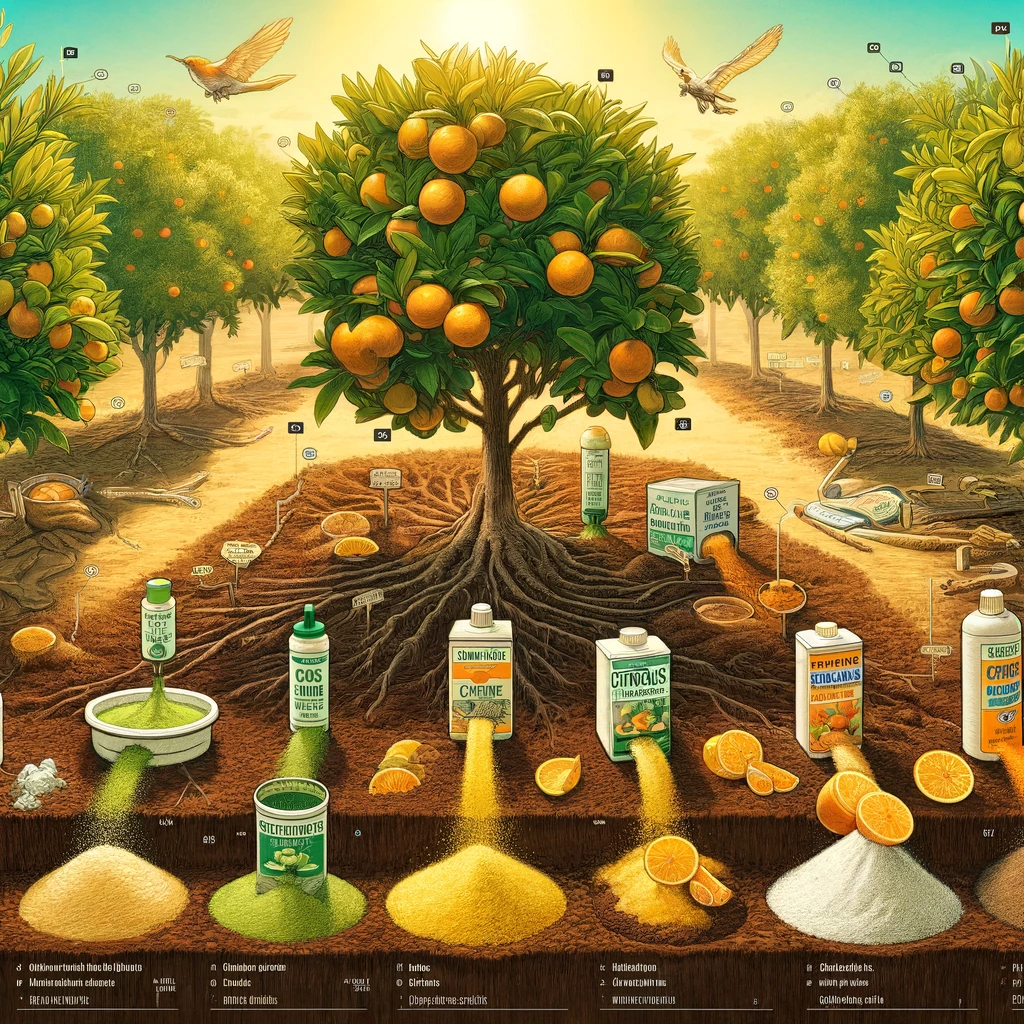
Assessing Soil and Plant Needs
As we focus on cultivating citrus trees, applying the right organic citrus fertilizer begins with a deep understanding of both soil and plant needs. This section provides a step-by-step guide on how to assess these requirements effectively to ensure your citrus trees thrive and produce abundant fruits.
Importance of Soil Testing
Soil testing is a crucial first step in any fertilization program. It provides essential information about the nutrient content, pH level, and overall health of your soil. This knowledge is vital, as it can reveal nutrient deficiencies or excesses and help you select the appropriate fertilizer for your orchard’s specific conditions. Regular soil tests allow you to monitor the effectiveness of your fertilization strategy and make necessary adjustments over time.
Identifying Nutrient Deficiencies
Citrus trees have specific nutrient requirements that must be met for optimal health and productivity. Common deficiencies in citrus include nitrogen, potassium, and magnesium, each presenting unique symptoms:
- Nitrogen deficiency often manifests as yellowing leaves, impacting overall growth and vigor.
- Potassium deficiency can cause leaf curling, affecting the plant’s ability to synthesize proteins and its overall water regulation.
- Magnesium deficiency might lead to leaf chlorosis, particularly on older leaves, which can eventually affect photosynthesis and plant energy.
By identifying these deficiencies early, you can choose an organic citrus fertilizer that specifically addresses these issues to maintain healthy and robust citrus plants.
Understanding Soil pH Balance
Soil pH significantly affects nutrient availability and uptake. Citrus trees generally prefer a soil pH between 6.0 and 7.0. If soil tests show a pH value outside this range, adjusting it with the right fertilizer can improve nutrient uptake and prevent potential toxicity from elements that become more soluble at extreme pH levels.
Tailoring Organic Fertilizer Choices
Selecting the right organic citrus fertilizer involves several considerations:
- Specific Citrus Varieties: Different citrus types may have unique nutritional needs. For example, lemons might require more nitrogen than oranges to support vigorous leaf and branch growth.
- Growth Stages: The nutrient needs of citrus trees vary significantly throughout their lifecycle. Younger trees benefit from fertilizers higher in nitrogen to support growth, while mature fruit-bearing trees may need more potassium to enhance fruit quality.
- Soil Type and Condition: The structure and composition of your soil influence how nutrients are retained and released. Sandy soils, for example, drain quickly and may require more frequent applications of fast-releasing nutrients.
By carefully assessing soil conditions, nutrient needs, and plant health, you can effectively tailor your fertilizer application to enhance both the growth of your citrus trees and the sustainability of your orchard. This thoughtful approach ensures that your trees not only thrive but do so in an environmentally responsible manner.
Application Techniques for Organic Citrus Fertilizers
Proper application of organic citrus fertilizer is crucial for achieving optimal nutrient absorption and ensuring maximum benefits for citrus trees. Here’s a comprehensive guide on how to effectively apply organic fertilizers to your orchard.
Best Practices for Fertilizer Application
Timing is Essential:
- Early Season Application: It’s beneficial to apply organic fertilizer during the early growing season to support robust root development and initial growth spurts.
- Pre-Flowering and Fruiting: A pivotal application should occur just before flowering to encourage flower formation, followed by subsequent applications to support fruit development.
Method of Application:
- Soil Application: This common method involves applying fertilizer directly to the soil around the tree. This ensures that nutrients are absorbed slowly by the roots over time.
- Foliar Application: Spraying diluted organic fertilizer directly onto the leaves can facilitate quick nutrient uptake, providing immediate benefits, especially if the plant shows signs of deficiencies.
Dilution and Dosage:
- Adherence to manufacturer’s guidelines for dilution and dosage is essential to prevent over-fertilization, which can lead to nutrient runoff or even harm the plants.
- Typically, smaller, more frequent applications are preferred over large, sporadic ones, as they provide a steady supply of nutrients.
Seasonal Fertilization Schedules:
- Spring: Utilize nitrogen-rich fertilizers to encourage vigorous leaf and branch growth.
- Summer: Potassium-rich fertilizers are ideal for supporting fruit sizing and quality as the fruits mature.
- Autumn: Application of balanced fertilizers can help strengthen the trees against colder temperatures.
Common Mistakes to Avoid:
- Over-fertilizing: Excessive use of fertilizers can lead to nutrient burn, damaging the plant’s roots and leading to poor growth or even plant death.
- Improper Timing: Avoid applying fertilizers late in the season as it can promote new growth that may not withstand colder weather.
- Ignoring Soil pH: Citrus trees thrive in slightly acidic soil. Ignoring soil pH can inhibit nutrient absorption.
By adhering to these guidelines, orchard managers can ensure that their citrus trees receive the optimal balance of nutrients, enhancing both growth and fruit production, and contributing to the overall sustainability of the orchard.
Monitoring and Adjusting Fertilization Practices
Effective usage of organic citrus fertilizer involves continuous monitoring and timely adjustments to meet the dynamic needs of citrus trees, ensuring optimal growth and contributing positively to sustainable agriculture practices.
Key Techniques for Monitoring Fertilization Effectiveness
Regular Soil Testing: Essential for assessing soil health and nutrient levels, regular soil tests guide adjustments in fertilizer application to ensure that the nutritional needs of citrus trees are being met.
Visual Inspection of Plant Health: Regular visual assessments provide immediate insights into the health of citrus trees. Observations of leaf color, growth rates, and general vigor are indicators of the effectiveness of current fertilization strategies.
Keeping Records: Detailed record-keeping of fertilization schedules, weather conditions, and tree responses over time is crucial for evaluating the effectiveness of fertilization practices and making informed adjustments.
Adjusting Fertilization Strategies
Tailoring to Growth Stages: Citrus trees’ nutritional needs vary with their growth stages. Young trees might require more nitrogen for growth, while mature trees benefit from increased potassium to enhance fruit quality.
Seasonal Adjustments: Adjusting fertilizer types and applications according to the seasons is critical. For example, reducing nitrogen levels before winter can prevent new growth that is vulnerable to frost.
Revising Application Methods: If issues like nutrient runoff or poor absorption are noted, altering the application method—from ground application to foliar sprays, for example—can improve nutrient uptake and efficiency.
Importance of Sustainable Practices
Organic Certification Compliance: Adherence to organic certification standards ensures that farming practices meet regulatory requirements and support environmental sustainability.
Organic Fertilization Practices: By utilizing organic fertilizers, farmers reduce chemical runoff, enhance soil biodiversity, and improve the overall ecosystem health of their orchards.
By diligently monitoring and adjusting organic fertilization practices, farmers can ensure their citrus orchards remain productive and sustainable. This proactive approach not only supports the health and yield of the citrus trees but also aligns with broader environmental conservation efforts.

Conclusion
Choosing organic citrus fertilizer is not just about employing responsible farm management; it encompasses broader goals of sustainability and environmental stewardship. This approach offers multiple benefits:
- Better Plant Health and Production: Organic fertilizers provide citrus trees with essential nutrients that promote robust growth and increased fruit production.
- Soil Health Improvement: These fertilizers enhance soil fertility by enriching its organic matter content and microbial activity, which are vital for sustainable farming systems.
- Environmental Sustainability: Organic fertilizers contribute to a healthier environment by reducing pollution from harmful runoff and toxic chemicals, and by fostering increased biodiversity.
The sustainability of the citrus industry relies on continuous innovation and adaptation of organic practices. There is a crucial need for farmers and researchers to persistently develop more efficient and effective organic fertilizers and to enhance nutrient management and pest control through advanced biological methods.
Future Trends in Organic Citrus Fertilization
- Technological Advances: Innovations such as drone technology and Internet of Things (IoT) sensors are revolutionizing precision agriculture, making the application of organic fertilizers more efficient and less labor-intensive.
- Regulatory and Marketing Incentives: As consumer demand for sustainable and organic products grows, regulatory and market responses are likely to promote the use of organic fertilizers across the agricultural sector.
- Integration with Other Sustainability Practices: Future success in farming will increasingly depend on the integration of organic fertilization with innovative techniques like water conservation and integrated pest management.
Embracing these trends and continuing to innovate will ensure the citrus industry’s longevity and its ability to supply healthy produce to consumers while supporting the planet’s health. This holistic approach to using organic citrus fertilizer not only improves crop production but also aligns with global sustainable development goals.
FAQs: Common Questions About Organic Citrus Fertilizer
Q1: What is organic citrus fertilizer?
made from origins such as plant, animal or mineral, Organic Citrus fertilizer is a natural product, specifically formulated and tested to work for Citrus Trees. Since they are made from organic sources, they do not contain any artificial chemicals such as synthetic fertilizers.
Q2: Why should I use organic fertilizer for my citrus trees?
Using this organic citrus fertilizer irrigates the soil with nutrients, providing the citrus plants with the right microbial array, improving the whole soil health through the addition of organic matter, higher microbial activity, and less chemical runoff, which in turn contaminates our water. All of these actions makes farming more sustainable by using renewable resources.
Q3: How often should I apply organic citrus fertilizer?
Use in accordance with the instructions on the product label, and according to the growth stage of your trees. For best results, apply before the citrus trees begin to flower and again every couple months throughout the growing season to promote citrus-fruit growth and general health.
Q4: Can organic citrus fertilizer improve the quality of my fruit?
Certainly, just as organic fertilizers can enhance fruit quality, when they are evenly spread over the field and a customised mix with all nutrients in the right quantities is applied, the plant is better nourished and leads to the formation of tastier and more nutritious fruits. This occurs because healthy soil ecosystems means better nutrient uptake.
Q5: Is organic citrus fertilizer more expensive than synthetic options?
Organic fertilizer may cost more than synthetic in the short term, but in the long term soil health can be enhanced to reduce environmental impact and provide better plant health, offsetting any upfront costs. What is more, reduced dependence on chemical inputs over time could result in cost savings.
Q6: How do I choose the right type of organic citrus fertilizer?
In purchasing the appropriate organic fertilizer, consider what nutrients your soil presently has and match them with what type of fertilizer (dominant nutrient ratio, specifically for citrus nutrition and local soil conditions) ought to be applied.
Here are three scholarly references about organic citrus fertilizers:
- A study from PLOS ONE discusses the nutrient uptake of organic versus mineral fertilizers in citrus trees, highlighting issues like soil health and nutrient efficiency in organic citrus farming systems.
- Another detailed resource is an article from MDPI that explores various aspects of organic fertilization in agriculture, which may include data relevant to citrus trees.
- The third source is from ResearchGate, where a study discusses the efficacy of different types of fertilizers on citrus production, comparing organic options to conventional ones.


